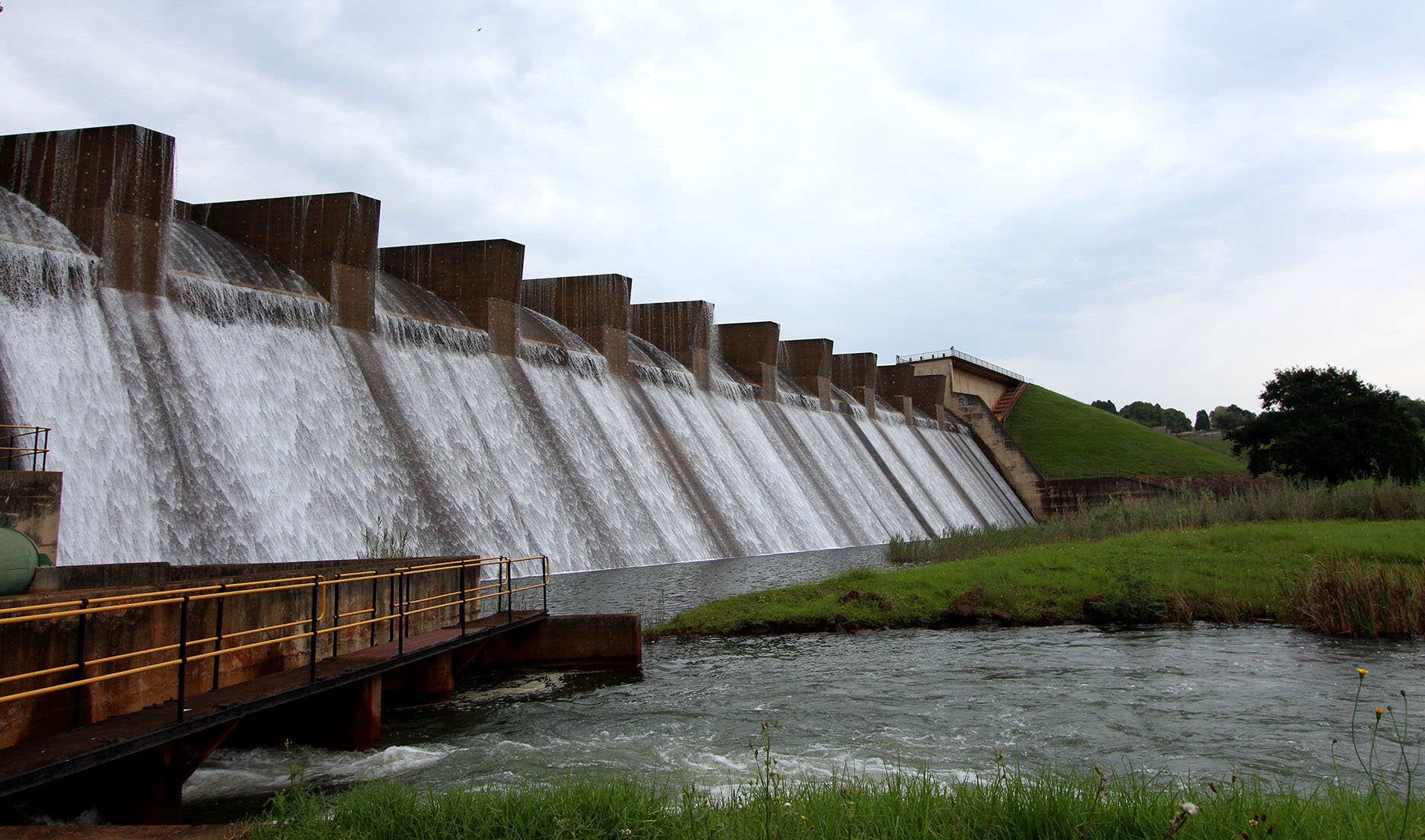The new “12-month-long” water rationing scheme in eThekwini could stretch out for seven years – unless the city makes some rapid progress in plugging its leaking pipelines and curbing the soaring demand for tap water.
While the city’s escalating water crisis is set to be relieved by the construction of a major new dam on the Umkhomazi River, that water will start flowing to the city only in 2032 at the earliest.
This emerged during a media briefing on 3 October 2024, when senior eThekwini Municipality officials outlined further details of the Durban water rationing and curtailment scheme that takes effect on 10 October.
Urging residents and businesses to use water sparingly to avoid even more serious water restrictions, eThekwini Mayor Cyril Xaba said the new measures aimed to achieve an 8.4% reduction in the city’s current consumption rate over the next 12 months.
However, given that at least 33% of all tap water supplied to Durban is leaking into the ground from broken pipelines, a much lengthier period of restrictions appears inevitable unless the city can achieve dramatic reductions in water losses.
Yet over the past 14 years, Durban’s non-revenue water (NRW) losses – from pipe leaks, theft and unbilled water consumption – has soared from around 32% in 2009 to 58% in 2023. Loss rates vary from month to month, but in July 2023, eThekwini’s NRW losses were recorded at 65.6%.
Read more: Durban to face water rationing for at least the next 12 months
Ethekwini water and sanitation chief Ednick Msweli said the city’s present NRW loss estimate was around 54% (a 4% reduction since last year).
Asked to quantify what proportion of these losses was directly due to leakage, he estimated that physical leaks from pipes accounted for about 60% of NRW losses.
In the longer term, Durban is pinning its hopes on securing significant new supplies from the Umkhomazi River to supplement existing supplies from the increasingly stretched Umngeni and Mooi River water storage system which includes the Midmar, Albert Falls and Inanda dams.
However, in response to questions from Daily Maverick at the media briefing on Thursday, uMngeni-uThukela Water Board operations executive Phokela Maponya said the first water supplies from the proposed Springfield Dam and Lower Umkhomazi water supply scheme would come on stream only around 2032 – another seven years hence, if construction goes according to schedule.
 The level of the Albert Falls Dam near Pietermaritzburg dropped to just 20% in 2017, the lowest level since 1995. Though the dam level has risen significantly since then, it remains under increasing strain to provide reliable water supplies to at least five million people in Durban and Pietermaritzburg during the dry winter months. (Photo: Supplied)
The level of the Albert Falls Dam near Pietermaritzburg dropped to just 20% in 2017, the lowest level since 1995. Though the dam level has risen significantly since then, it remains under increasing strain to provide reliable water supplies to at least five million people in Durban and Pietermaritzburg during the dry winter months. (Photo: Supplied)
According to the national Department of Water and Sanitation, the world average per capita water consumption is around 173 litres per person per day, whereas in eThekwini it is almost double this – around 298 litres per person per day.
Read more: Government squeezes Durban taps over city’s failure to curb 58% water loss rate
Mayor Xaba, who took over from former ANC mayor Mxolisi Kaunda nearly three months ago, told journalists this week that resolving the water and sanitation crisis was his “apex priority”.
“In this regard, we are meeting every Friday to receive reports and assess the progress on the infrastructure upgrading and repair projects that are currently under way. Tomorrow, we will be starting to conduct these meetings on site, at water reservoirs that are giving us challenges, starting from the northern areas. Our intention is to quickly resolve identified challenges in our water and sanitation infrastructure,” he said.
Xaba said he also met a group of retired water engineers earlier this week, who had largely “concurred” with the city’s proposals to start reducing water losses through a range of measures that include reducing water pressure; water-rationing in areas where demand is “too high or exceeds available supply” and the installation of further water restriction washers at the household level.
In response to queries on whether eThekwini would aim to reduce water consumption using measures that were equitable across the city, Msweli said pressure reduction was a measure that would affect all communities equally. However, the city remained adamant that measures were also needed in areas where consumption was considered to be too high.
Mayor Xaba added that “everyone” had to play a part.
“If you connect illegally you are robbing the municipality of revenue… If you are stealing water, someone else has to pay … it has to be two ways. We give you water, and you give us money.”
Asked how much the city had allocated this financial year to maintain and replace leaking municipal pipes, Msweli indicated that about R110-million had been allocated for this purpose.
Notably, a recent financial analysis by former city councillor Alan Beesley suggests that eThekwini lost the equivalent of R2.3-billion through non-revenue water losses in 2023. DM
https://www.youtube.com/watch?v=REeWvTRUpMk




 The level of the Albert Falls Dam near Pietermaritzburg dropped to just 20% during 2017, the lowest level since 1995. Though the dam level has risen significantly since then, it remains under increasing strain to provide reliable water supplies to at least five million people in Durban and Pietermaritzburg during the dry winter months. (Photo: Supplied)
The level of the Albert Falls Dam near Pietermaritzburg dropped to just 20% during 2017, the lowest level since 1995. Though the dam level has risen significantly since then, it remains under increasing strain to provide reliable water supplies to at least five million people in Durban and Pietermaritzburg during the dry winter months. (Photo: Supplied)